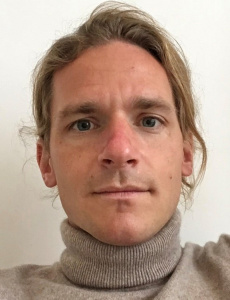Science Diplomacy: A regular topic addressed by the European Research Council

Science diplomacy was both a strategic and topical component of the EU Horizon 2020 funding programme, with a greater international focus than its predecessor and the three EU science diplomacy research projects emerging as a result. David Theis (UCM in Madrid, ERC Ethics Review and Monitoring trainee) recently provided a perspective on the role of SD at the European Research Council (ERC) and its ethical review process of projects to be funded by the follow-up to Horizon 2020: the Horizon Europe programme. He summarizes the seminar below.
On the last day of June 2021, the Scientific Management Department of the European Research Council (ERC) provided one of its newcomers at the Executive Agency with a stage to talk about science diplomacy and the European Union’s normative influence as an actor in world politics.
David Theis, doctoral candidate in Political Sciences at the UCM in Madrid and currently a trainee at the Ethics Review and Monitoring section, held a seminar on the normative implications of ethical standards in transnational scientific collaboration and research funding.
The audience consisted of ERC staff working in the fields of research funding, Life Science, Physics and Engineering or Humanities and Social Sciences.
The presentation departed from the point that “the normative power basis of the EU as an actor in international politics is perpetuated and strengthened by the ethical assessment of the groundbreaking research that the EU is funding and promoting via the Horizon Europe grant framework”.
The immense budget, the three-pillar structure and the feasibility to conduct transnational research are highly attractive features of this funding programme and have proven appealing to European and international scientists alike.
The Horizon framework reflects the EU’s strategic priority to encourage and foster international scientific collaboration. It facilitates collaboration and strengthens the impact of research and innovation in developing, supporting and implementing EU policies while tackling global challenges. Because participation is also open to applicants from non-EU countries, the framework has a leverage effect on the advancement of international scientific collaboration.
A Horizon Europe funding application entails an a priori ethics review of the proposal and periodic monitoring of the project during the grant lifecycle. During review panels, groups of international professionals, external to the ERC and with expertise specific to the research field, assess and evaluate proposals and ongoing grants in order to clear ethical concerns before a grant agreement is established or during the research period.
“The ethical aspects addressed in this context reflect the founding values of the EU, codified in the Treaty of Lisbon. By obliging grantees contractually to comply with EU regulations on sensitive ethical issues such as human embryonic stem cell research, personal data protection or environmental and safety standards, the EU capitalises on its scientific capacities to shape the perception of the normal among international research communities” elaborated David.
The effectivity of this type of normative transfer can be interpreted through theoretical concepts of norm dissemination such as institutionalised procedural diffusion and transference of community standards.
Our complex present as an international community is under severe pressure from global transformation processes. Transnational challenges in the fields of disease control, environmental rehabilitation, social transformation and urban development require more international cooperation in science. In pursuit of this objective through the Horizon Europe programme, the EU assumes the responsibly to ensure the research it supports, within and beyond its borders, is compliant with its high ethical standards, leveraging a unique pathway for promoting EU fundamental values abroad.
This seminar was part of a series of activities hosted by the ERC regarding the topic of science diplomacy. Another seminar was held in January 2020 and featured presentations by S4D4C and InsSciDE. Watch a recording of the event: Joint ERC / REA Seminar – Science Diplomacy | ERC: European Research Council (europa.eu); or read the event summary here.
 David THEIS, PhD Candidate in Political Science
David THEIS, PhD Candidate in Political Science
European Research Council Executive Agency
Ethics Review and Monitoring
Ethics Officer Trainee
